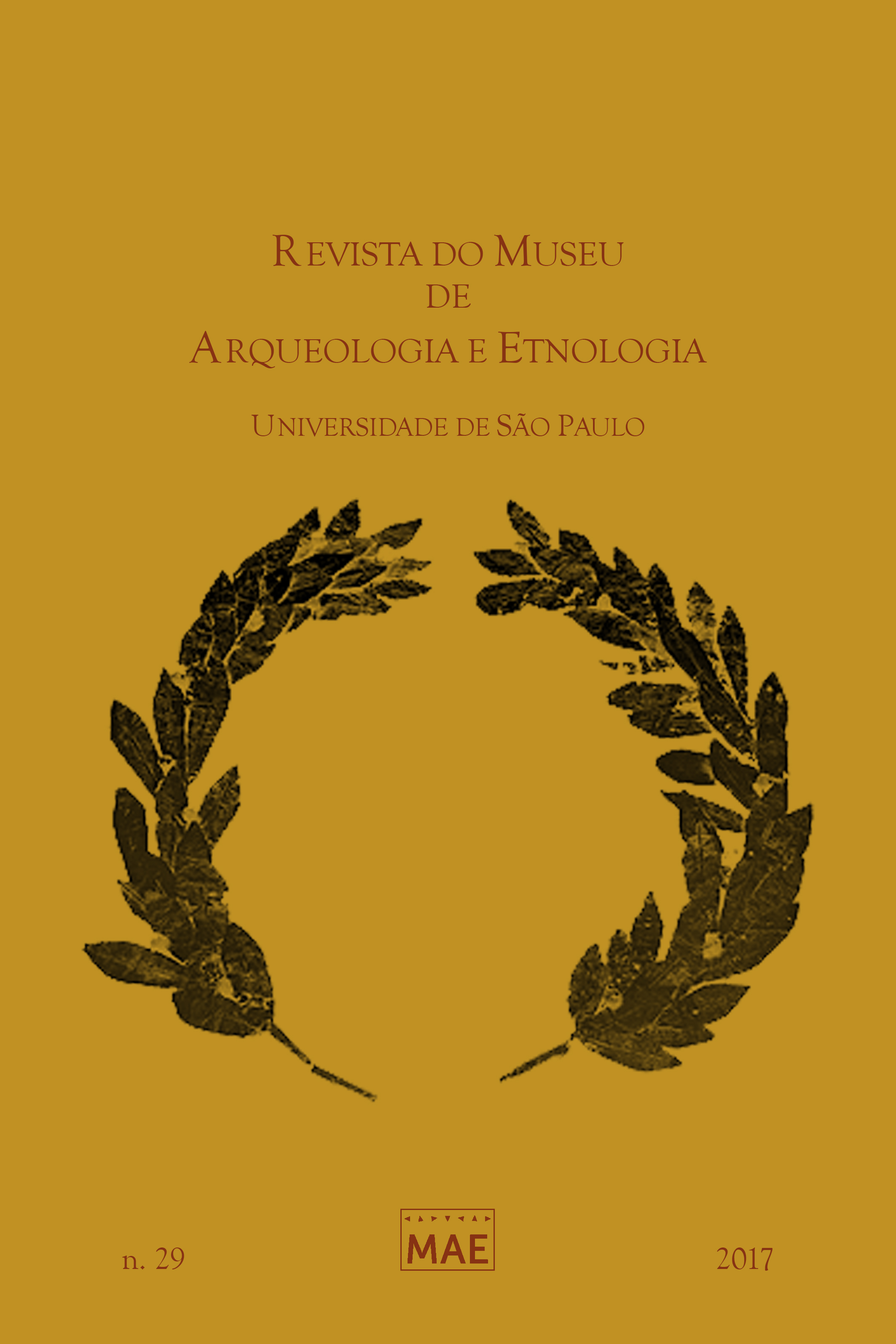Louros a Esparta: entre ἀγωγή e ἀγών
DOI:
https://doi.org/10.11606/issn.2448-1750.revmae.2017.154961Palavras-chave:
Esparta, Jogos Olímpicos, Olimpiônicos, Licurgo, AgogéResumo
O objetivo deste artigo é demonstrar a relação entre educação (ἀγωγή) e competição (ἀγών) em Esparta no contexto dos Jogos Olímpicos da antiga Hélade
Downloads
Os dados de download ainda não estão disponíveis.
Referências
Downloads
Publicado
2017-12-30
Edição
Seção
Artigos
Licença
Direitos autorais (c) 2017 Maria Aparecida Oliveira da Silva

Este trabalho está licenciado sob uma licença Creative Commons Attribution-NonCommercial-NoDerivatives 4.0 International License.
Como Citar
SILVA, Maria Aparecida de Oliveira. Louros a Esparta: entre ἀγωγή e ἀγών. Revista do Museu de Arqueologia e Etnologia, São Paulo, Brasil, n. 29, p. 105–111, 2017. DOI: 10.11606/issn.2448-1750.revmae.2017.154961. Disponível em: https://revistas.usp.br/revmae/article/view/154961. Acesso em: 1 mar. 2026.


















